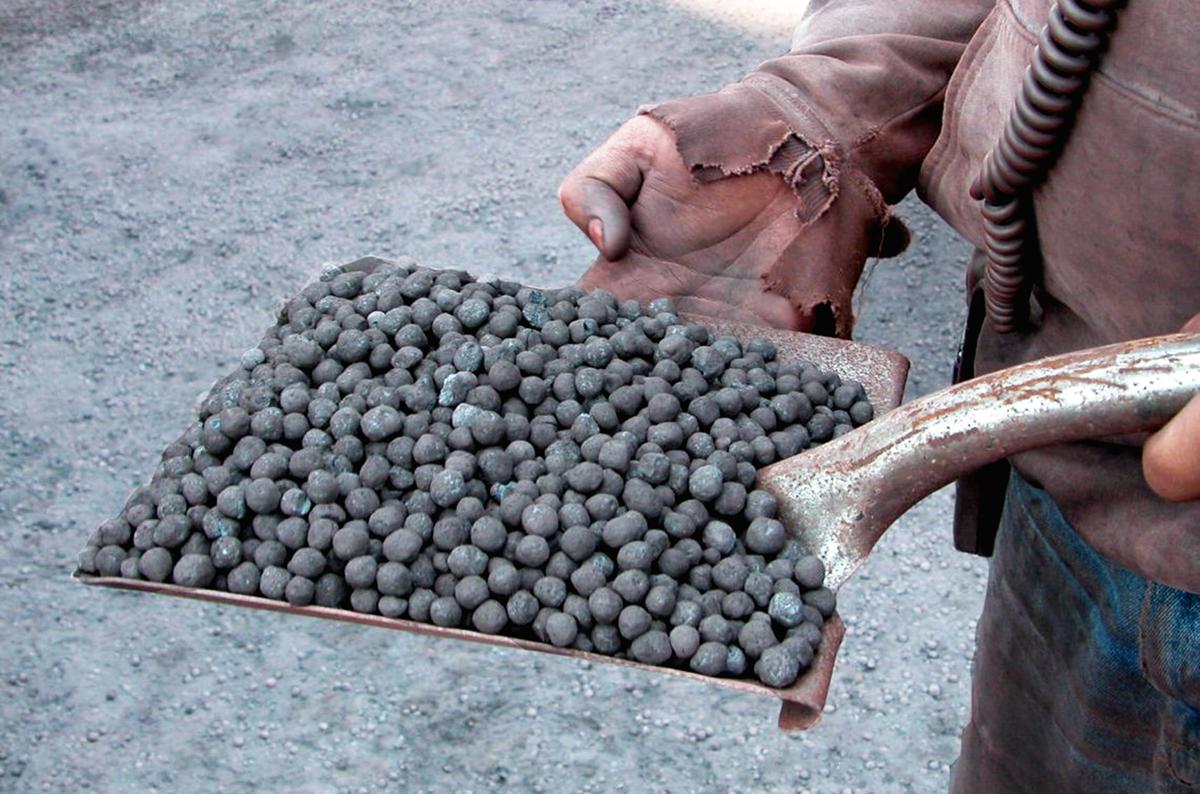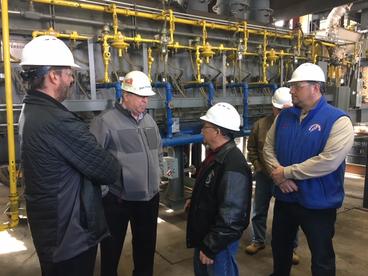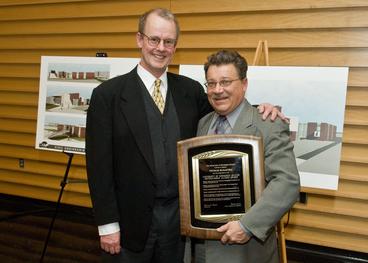Reflecting on the legacy of Tom Rukavina, especially his pride in the Natural Resources Research Institute, Rolf Weberg, NRRI executive director, has nothing but respect.
“I always looked forward to talking with Tom because I always learned something,” said Weberg. “But I had to be prepared before any conversation. Because he’d be more prepared. Tom was quick and he always had a constructive intent.”
As a long term state legislator, he oversaw and supported NRRI's efforts to assist the taconite industry to efficiently produce high quality, modern taconite pellets. His last visit to NRRI was as St. Louis County Commissioner in late February 2017 to witness the start-up of the Biomass Conversion Lab. Rukavina was interested in research support for forestry and the wood products industry. He saw potential in the torrefaction process to convert local wood supplies into a product to power county buildings.
Representing Minnesota District 5A, Rukavina had an often singular focus on making life better for the working people of the Iron Range. He fought to establish a $50 million endowment for NRRI’s Coleraine Minerals Lab so that applied research could keep the mining industry moving forward. Royalties from taconite mining on University-owned lands were dedicated to research and an Endowed Taconite Chair position, as well as education scholarships.
In a 2006 interview, Rukavina talked about NRRI research to find valuable uses for taconite waste rock, mercury reduction in water systems, biomass and hybrid poplar research.
“This is exactly the type of research I envisioned being done when we established the endowment with the Coleraine Lab in the first place,” he said then. “The resources on the Iron Range are valuable to all of us and we should all work together.”
Weberg recalled conversations with Rukavina about how NRRI’s comprehensive approach to research – water, energy, minerals, forests, wildlife – was necessary for the future of northeastern Minnesota. While he often focused on the mining industry, Rukavina appreciated the connection between all the resources.
“And when we discussed getting things done, moving projects out of the lab, that’s where he lived. When I talked about impact and results, he was on board,” said Weberg.
UMD Chancellor Lynn Black added that Rukavina’s legacy will live on forever through students. His leadership resulted in an endowment for undergraduate scholarships for the entire University of Minnesota and is now the largest source of scholarships in the University.
“He was a passionate man who made a lasting impact on so many, but especially here at UMD,” said Black. “We are saddened by the passing of Tom Rukavina.”
NRRI researchers will continue to honor his legacy every day by meeting the mission Rukavina helped to hone, deriving the highest value from Minnesota’s resources.


